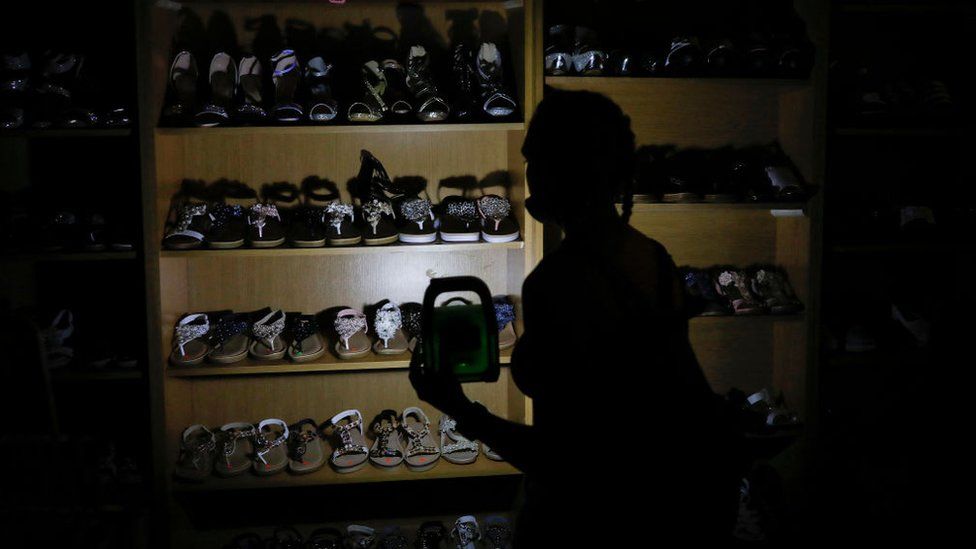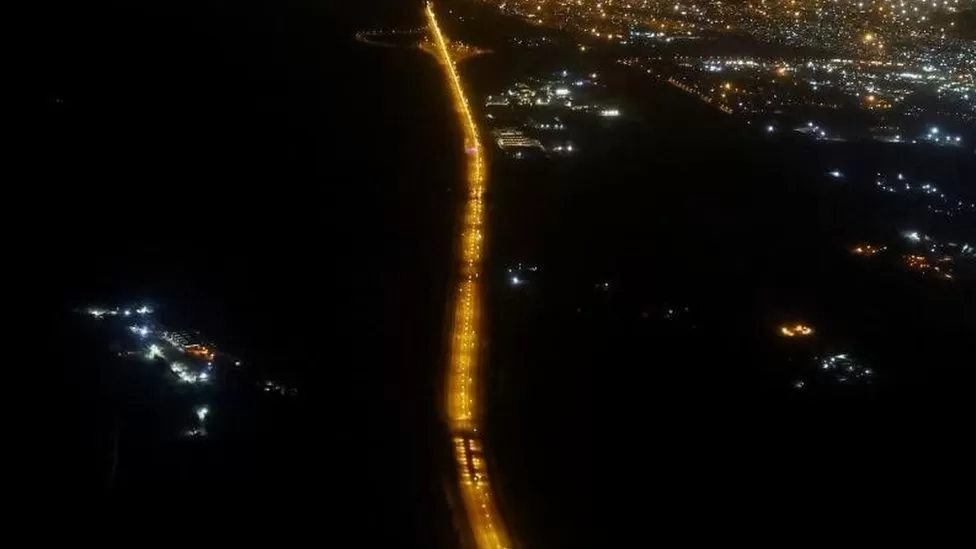South Africa’s President Cyril Ramaphosa has appointed a minister of electricity – probably the least coveted job at the moment as the country is experiencing its worst-ever electricity crisis.
Millions of people are without lights every day – sometimes for up to 10 hours – in cities and towns across South Africa.
The power cuts, referred to as load-shedding, have caused much frustration, not least on the roads as traffic lights often do not work, causing gridlock.
Fortunately, some beggars and homeless people have seized the opportunity to kit themselves out in reflective vests – and to take responsibility for directing traffic.
I have been grateful for their intervention, especially when I have children in the car, worried that they are running late for school.
In return, the self-appointed traffic officers expect some money or food, which most motorists – except the most miserly – have no problem giving.
But it does make you wonder about the government. Why should homeless people have to direct traffic? Where are the hundreds of traffic officers, paid to do just that?
The worsening power cuts are a new reality for many of us, and are anxiety-inducing. There have been frequent reports of burglaries in homes and businesses, and car hijackings as criminals strike under the cover of darkness.
When the power is out mobile phone networks are also often down. This can be for hours, making communication difficult.
For those who cannot afford alternative sources of power like generators – and they are the majority – it means cold dinners, and homework with a lamp or candle.
The impact on the economy has been huge. Businesses have been closing down, and jobs have been shed as companies see their production costs rising as they have to get back-up power.
Only two days in the last quarter of 2022 were without power cuts.

To deal with the crisis, Mr Ramaphosa has appointed South Africa’s first-ever minister of electricity, Kgosientsho Ramokgopa.
He has a reputation of being a technocrat, who prefers working behind the scenes. Now, Mr Ramokgopa has been thrust into the spotlight.
But he is no political novice, having served in provincial and local government, and was most recently the head of investment and infrastructure in the president’s office.
He has not yet unveiled his plans, but he will have to get grips with the problems at South Africa’s only power company, state-owned Eskom.
It is collapsing under the weight of an aging coal fleet, rampant corruption, sabotage by criminal cartels, and a leadership crisis – it has had 13 chief executive officers in just over a decade.
Mr Ramaphosa has described Mr Ramokgopa as a “transitory” minister, which suggests the post may be scrapped at some point. Put simply, his job is to make sure the lights stay on in South Africa.
The president has not set a deadline, but the governing African National Congress (ANC) has spoken of sorting out the power crisis by the end of the year, an ambitious target.
There are already two powerful ministers dealing with the crisis. The Minister of Mineral Resources and Energy, Gwede Mantashe, and the Minister of Public Enterprise, Pravin Gordhan.
Both are veteran politicians who have the traits of a bull in a china shop. They want things their own way, and do not always agree on a way forward.
Mr Ramokgopa will need to get them to agree, and to even over-rule them if he thinks their plans are unviable. They have faced repeated criticism from the public for their failure to deliver.
Some analysts see Mr Ramokgopa as a super minister, who will require the full backing of the president to end the turf wars in his cabinet, and to achieve energy security for South Africa
There is no doubt that Mr Ramaphosa is under pressure. Parliamentary elections are due next year, and support for the ANC is likely to continue to dwindle if the blackouts do not end.
But the greatest worry is for the economy – the latest official figures show Gross Domestic Product shrunk in the last three months of 2022.
Overall the economy grew by only 2% last year, not enough to bring down the unemployment rate of 33%.
So, the challenges are huge and South Africans are hoping that things get better – not worse.
